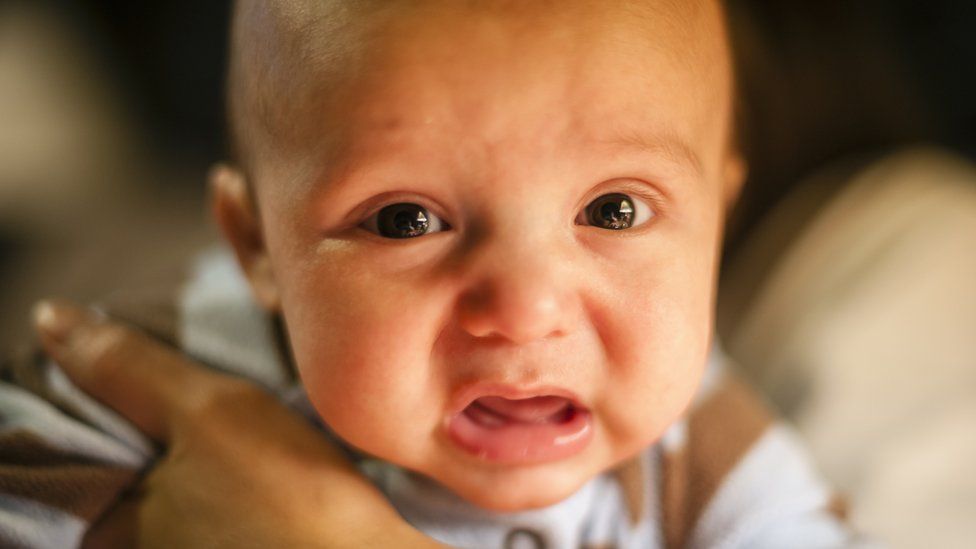ARTICLE AD BOX
 Image source, Getty Images
Image source, Getty Images
Scientists say they may have found the best strategy for calming upset babies.
Forget controlled crying or rocking in a crib.
According to a small but novel study, which asked parents to try a range of methods, walking for five minutes while carrying the infant and then sitting with them in your arms for another five before putting them down to sleep in their cot, is the most successful.
The findings appear in the journal Current Biology.
The Japanese researchers - some who are parents themselves - say the approach has similarities to the way some animals soothe their young. Many mammals will pick up and move about with their offspring to make them docile.
The researchers at the RIKEN Center for Brain Science ran an experiment with 21 babies, aged around three months - and their mums - to examine four approaches designed to stop a baby crying:
- being held by their walking mothers
- being held by their sitting mothers
- lying in a still crib
- lying in a rocking cot
The team found that when the mother carefully walked around while carrying the baby, the crying infants calmed down and their heart rates (measured with a portable monitor) slowed within 30 seconds. A similar calming effect occurred when the infants were placed in a rocking cot, but not when the mother held the baby while sitting, or placed the baby in a still crib.
It suggests maternal contact alone may not be enough to soothe - motion is important too, say the researchers.
Often, when the mothers then tried to put their sleepy babies to bed, the infant would stir and cry again. It happened even when the mums tried the gentlest, slowest lowering of their baby into the cot.
To get round this, it is better to sit still cuddling your baby for five to eight minutes after the short walk before attempting to put them to bed, the study findings suggest.
Lead investigator Kumi Kuroda said: "Even as a mother of four, I was very surprised to see the result. I thought that when a baby wakes during a laydown it is related to how they are put on the bed, such as their posture, or the gentleness of the movement. But our experiment did not support these general assumptions."
This five-to-eight minute window that the researchers recommend, roughly corresponds to the length of time it takes people to pass into deeper sleep, they say.
The team are working on making a smartphone app to guide caregivers with baby-soothing activities.
When to get help
Crying can mean that your baby is hungry, thirsty or has a dirty nappy - so it is important to check and solve these first.
It might also be a sign that your baby is in pain. Excessive crying could be a sign that your baby has a kind of stomach cramp called colic. The crying can go on for some hours. There may be little you can do except try to comfort your baby and wait for the crying to pass.
No matter how frustrated you feel, you must never shake your baby. Shaking moves their head violently and can cause brain damage.
If your baby is crying constantly and you cannot console or distract them, or the cry does not sound like their normal cry, it can be a sign that they are ill - and you should seek medical help. Trust your instincts and contact the emergency services if you think your baby may be very unwell.
Jenny Barrett from the National Childbirth Trust said: "Parents learn different techniques to soothe their babies. What works for some, doesn't always work for others. It's all about getting to know your baby and finding ways of calming them down that work for you and your family.
"Some parents find that holding their baby close does work, while other babies prefer movement, distraction or a change of environment."
Around the BBC
Related Internet Links
The BBC is not responsible for the content of external sites.

 2 years ago
46
2 years ago
46








 English (US) ·
English (US) ·